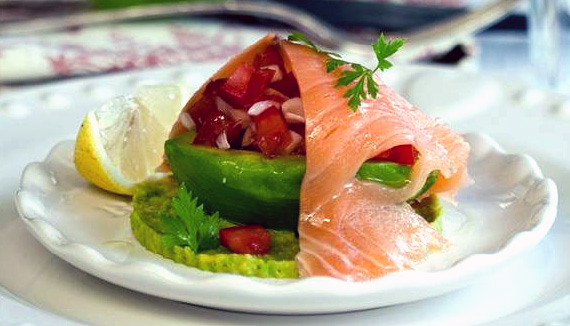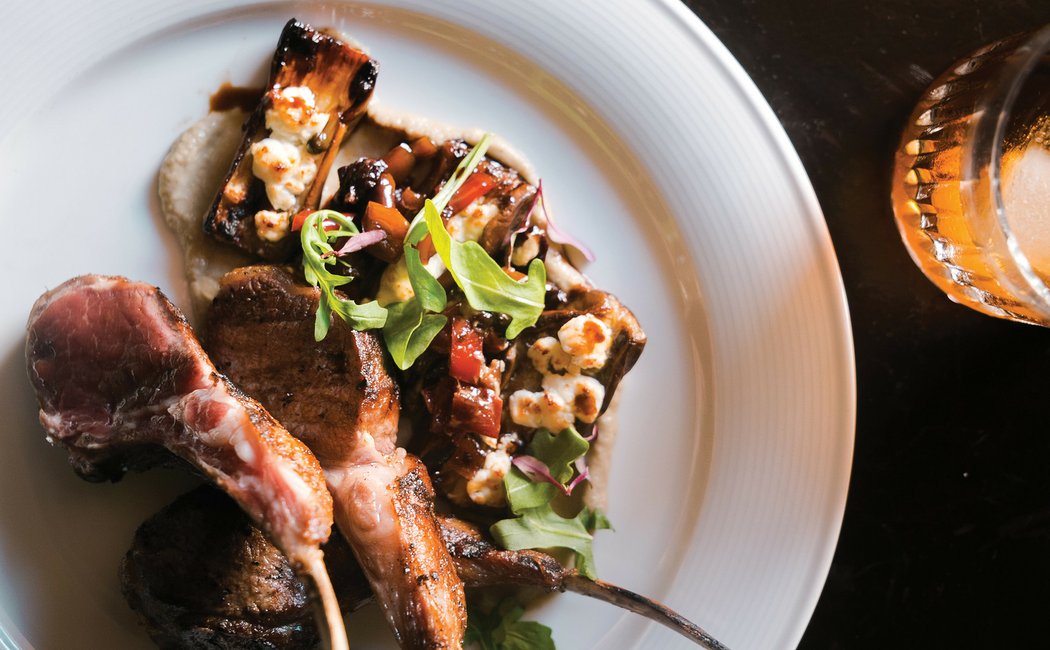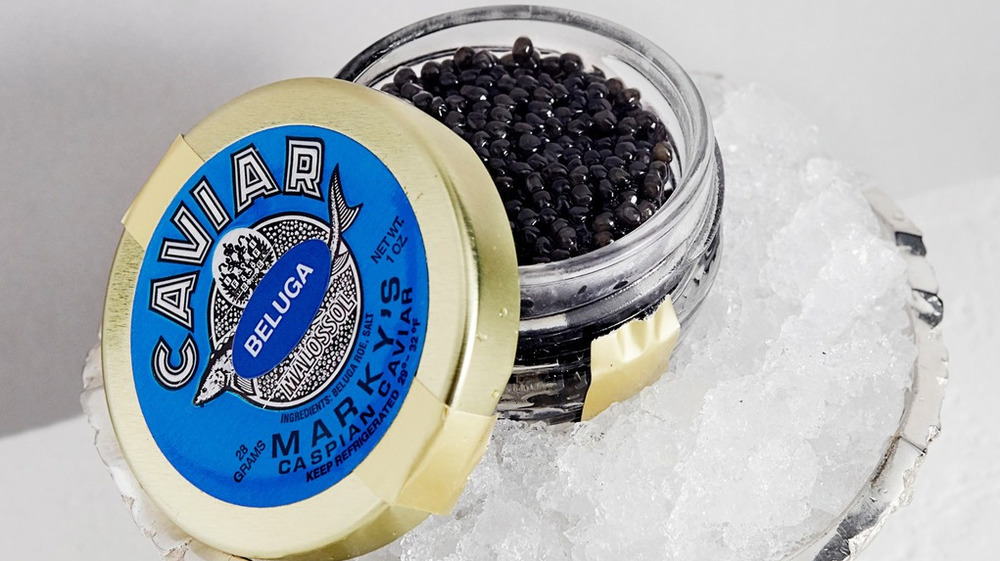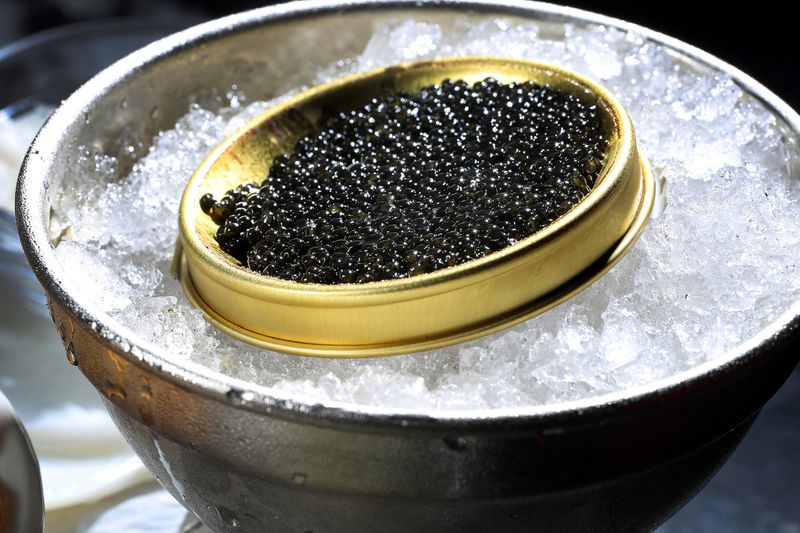Kosher Food for the Rosh Hashanah Celebration
The holiday of Rosh Hashanah, the Jewish New Year, is coming and bringing families and friends together for the solemn and homey celebration.
Rosh Hashanah falls on the first two days of Tishrei, the first month of the Jewish civil year. In 2019 these days on the Hebrew calendar correspond with September 29, September 30, and October 1 on the Gregorian calendar. According to the Jewish tradition, the celebration will start at sunset of September 29, the Rosh Hashanah Eve, and last till nightfall of October 1.
This is a very special time for Jewish families and communities. The Talmud says that on this holiday the G-d assesses people’s deeds and settles their fates for the coming year. So, Rosh Hashanah and the High Holidays after it are treated as the days of remembrance, repentance, and anticipation of changes for the better.

Time-Honored Food Traditions for Rosh Hashanah
After the shofar has been blown and the candles have been lit, the family and friends are gathering around the table and enjoying the traditional holiday dishes.
A kosher menu for Rosh Hashanah has a few peculiarities that date back to ancient times and shape the Jews’ general perception of the holiday.
On the first night, before the appetizers and main course, it is traditional to taste apples dipped in honey and the challah bread. Sweet apples and honey symbolize a good and smooth beginning of the new year. Round challah loaves represent the cyclical nature of the year and human life, where an end always marks a new beginning.
The other traditional foods and dishes also carry symbolic meanings. For example, the Hebrew and Yiddish names of the foods in the Rosh Hashanah menu sound very similar to real words with positive connotations in the Hebrew and Yiddish languages respectively.
The Yiddish word “mern” for “carrot” and “mer” for “more” look and sound very similar. So, among the Yiddish speakers, carrots symbolize the expectation of more blessings in the coming year.
The Hebrew word “selek” for “beetroot” is similar to the word for “remove.” So, beetroots are served in anticipation that everything bad will be removed from our lives.
The pomegranate, “rimon,” is usually eaten as a “new fruit” on the second day of the celebration. There is a belief that the pomegranate has 613 seeds, and this number is the same as the number of commandments in the Torah. Even if the numbers are not the same, eating the pomegranate still symbolizes the hope for fruitfulness in the new year.
But what about classic gourmet foods? Are they appropriate for the Rosh Hashanah dinner?
Marky’s decided to make an overview of topnotch kosher delicacies that you can enjoy together with your dearest and nearest at the festive table.
Overview of the Festive Kosher Delicacies
Would you like to treat your family and friends to something really sumptuous on this Rosh Hashanah holiday? Here is the list of kosher delicacies that will perfectly go along with all the traditional dishes on your menu.
Caviar
Caviar is well-known for adding a tangy hint to a festive entrée and a gourmet twist to the atmosphere around the table. You can serve it as is, in a glass bowl with mother-of-pearl spoons. Or you can play it up with kosher butter and crackers or blinis.
Here are the kosher caviar options for you:
- Black whitefish caviar and golden whitefish caviar is made from the roe of the whitefish. This fish has scales and fins, so it can be considered kosher. The caviar beads are firm but crispy and juicy. The natural sweetish tang of the juice makes whitefish caviar one of the connoisseurs’ favorites.
- Alaskan salmon roe with its orange-colored beads and flavor of salt honey will become a delectable decoration for the festive table. The salmon relates to the kosher fish. So, salmon roe will be a suitable gourmet treat for Rosh Hashanah.
- Bottarga roe, the specialty of Mediterranean cuisine, is made from the roe of the kosher bluefin tuna or grey mullet. Shaved bottarga is a piquant supplement for fish dishes, boiled potatoes, and salads.
Foie gras
According to the article by the Jewish Telegraphic Agency, classic French foie gras can be considered kosher. This delicacy will serve both as a scrumptious starter or finish for your holiday dinner.
To continue the sweet new year theme, serve foie gras canapés with fried mushrooms, baked apples, fig jam, or berry preserves.
Goat cheeses
If you want to include cheese into your menu, opt for a French chevre. As any other cheeses, chevres are versatile and pair well with different ingredients in any dishes.
What makes the goat cheese a much healthier option is the higher percentage of protein, minerals, and vitamins. Also, compared to cheeses from cow’s milk, chevres are lower in cholesterol and calories.
And we haven’t mentioned the specific creamy pungency of the goat cheese savor.
Gourmet fish
In the holiday context, the kosher fish symbolizes abundance and fruitfulness anticipated in the new year. The fish dishes always contain the fish head and body, which represent the people’s hope to dive into the coming year with strength and determination.
Of course, gefilte fish is one of the traditional Rosh Hashanah staples. But if you don’t have time to concoct it, here are a few gourmet substitutions:
- Scottish smoked salmon or Norwegian smoked salmon is already sliced and ready to be served with bread and cream cheese, vegetables, pasta, or rice. As an appetizer, smoked salmon will heat up your guests’ appetites. As a complement to the main courses, it will please their taste buds and ask for a second helping.
- Spanish white albacore tuna in olive oil will become a flavorful ingredient for a salad or solid base for a fish pate. Also, you can serve the fillets on a plate along with olives and grilled veggies. This could be a good idea if you planned a family cookout to celebrate Rosh Hashanah.
- Pickled anchovies from Morocco or Spain will successfully accompany vegetables and greens, potatoes, olives or capers, and even goat cheese. Make your own combinations to create a delicious appetizer.
Deli meats and meat pates
Would you like to pair the traditional beef brisket or chicken fillet with any meat delicacy for this year’s celebration? Check the list of delicious extras for your main dish:
- Fresh beef steaks can be a smart solution for the second day of the celebration. You’ll just need your favorite recipe and a tablespoon of culinary fantasy.
- Fresh duck breasts will be a great dinner idea if you want to cook something new for this Rosh Hashanah. Serve them with mashed potatoes, mashed pumpkin, or a warm beet salad, so you follow all the holiday food customs.
- Duck prosciutto is a decent poultry substitution for classic Italian pork prosciutto. This delicacy will make a mouthwatering starter for both a home dinner and picnic.
- Chicken and truffles mousse sounds like something from a restaurant and tastes like heaven. But it can easily appear on your table in a few days. So, if you’d like to add more flavors to the meal, the piquant mousse can stand in good stead.
Make your gourmet choices and have a perfect Rosh Hashanah dinner.
Marky’s wishes you and your family a happy Rosh Hashanah celebration!
Shanah Tovah Umetukah! שנה טובה ומתוקה!






